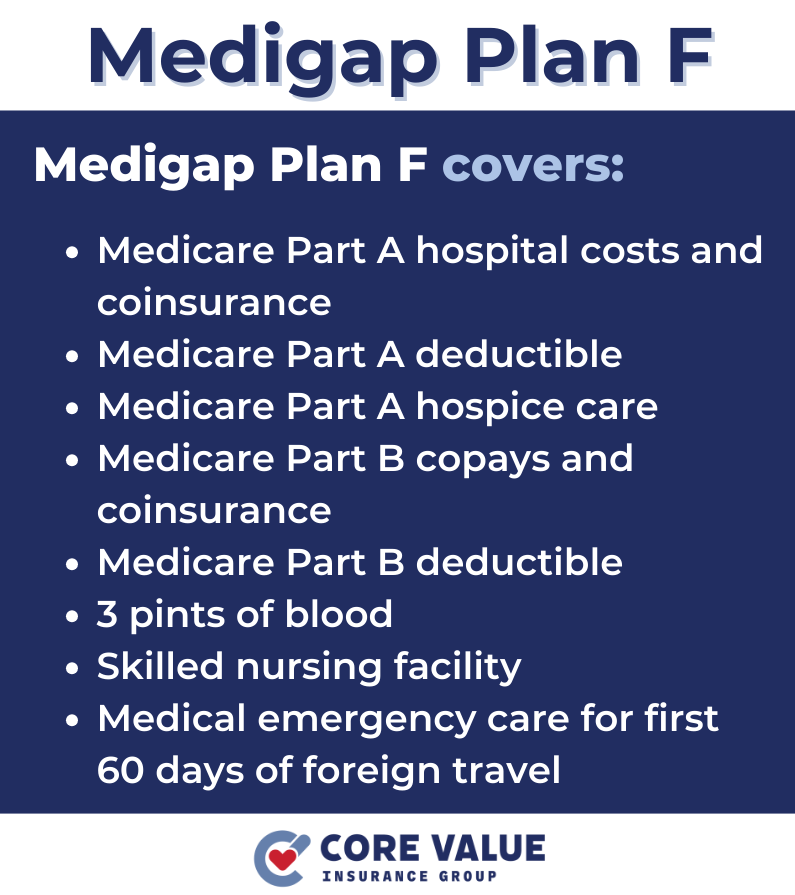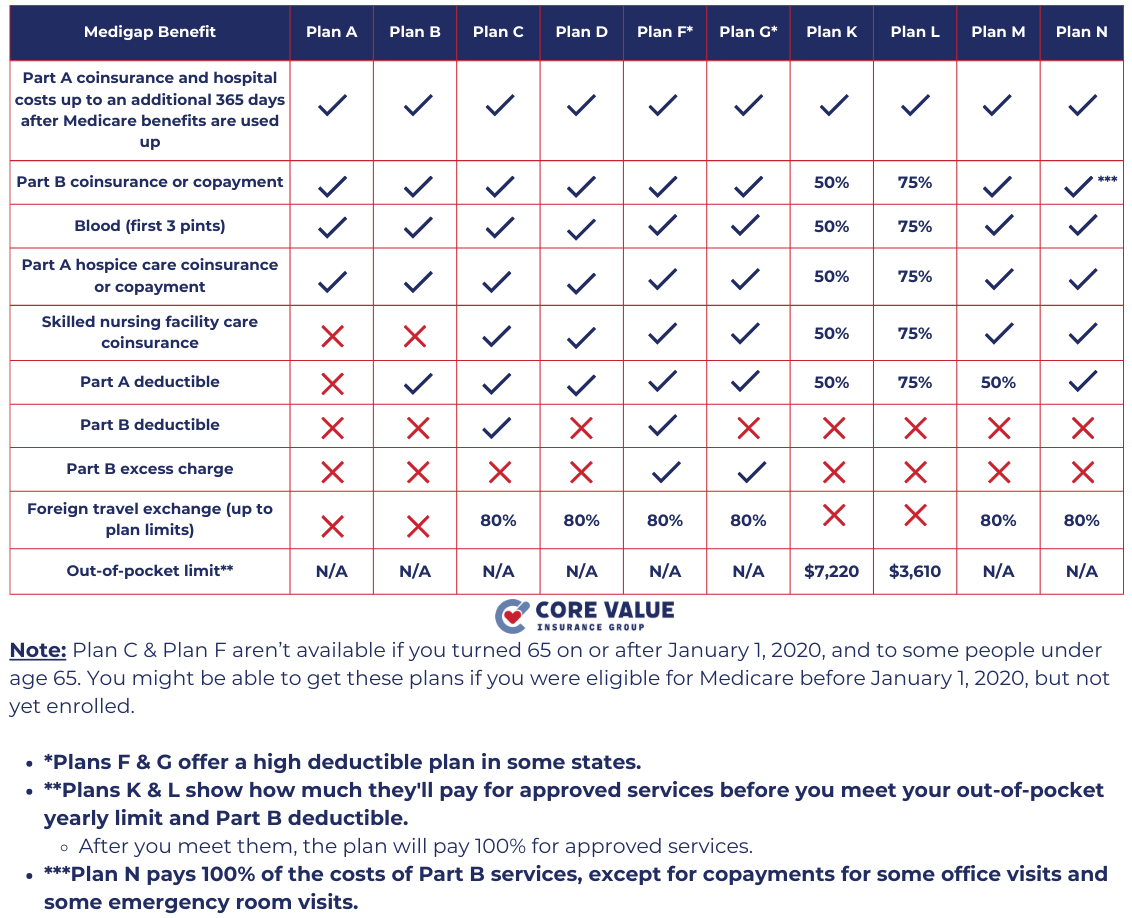Medicare Supplement coverage, also known as Medigap coverage, plays a crucial role in providing comprehensive healthcare coverage for Medicare-eligible individuals.
Let’s delve into the benefits and coverage offered by Medicare Supplement Plan F, along with exploring alternative options.
By understanding the various aspects of supplemental Medicare coverage, individuals can make informed decisions about their healthcare needs.
Additionally, you’ll review valuable information regarding enrollment and eligibility requirements for Medicare Supplement plans.
Benefits of Medicare Supplement Plan F
Medicare Supplement Plan F offers extensive coverage for Medicare-eligible individuals, making it a popular choice among beneficiaries.
One of the key benefits of Medigap Plan F is its ability to cover deductibles, copayments, and coinsurance, effectively reducing out-of-pocket expenses.
This comprehensive coverage ensures that individuals can receive necessary medical services without worrying about financial burdens.
Speak with a licensed insurance agent!
Enter your Zip Code to View Medicare Plans in your Area
In addition to cost-sharing coverage, Medicare Supplement Plan F provides coverage for various healthcare services.

Another notable feature of Medicare Supplement Plan F is its coverage for foreign travel emergencies.
This benefit comes in handy for those who frequently travel abroad or have plans to do so in the future.
In case of unexpected medical emergencies while traveling outside the United States, Medigap Plan F provides coverage for necessary healthcare services.
Comparing Medigap Plan F to Other Plans
When considering Medicare Supplement coverage, it’s important to explore alternatives to Medicare Supplement Plan F.
Two popular options are:
These plans offer similar coverage to Plan F but have some differences in cost-sharing and premiums.
Medicare Supplement Plan G provides comprehensive coverage that is comparable to Plan F. The main difference between the two is that with Plan G, beneficiaries are responsible for paying the Part B deductible out of pocket.
However, the premiums for Plan G may be lower than those for Plan F, making it a more cost-effective choice for some individuals.
Another alternative is Medicare Supplement Plan N, which also offers robust coverage.
With Plan N, beneficiaries may have copayments for certain services, such as doctor visits and emergency room visits.
However, like Plan G, the premiums for Plan N can be more affordable compared to those of Plan F.
Budget is an important consideration since different plans have varying costs. Individuals should assess their health needs and determine which plan provides adequate coverage for their specific medical requirements.
Personal preferences, such as preferred healthcare providers or flexibility in accessing care, should also be taken into account.

To make an informed decision about Medicare Supplement coverage, it’s crucial to compare the benefits, costs, and coverage of different plans.
Average Cost of Medicare Supplement Plan f
The average cost for Medicare Supplement Plan F in is roughly $200 per month for 2024.
Understanding the cost of Medicare Supplement plans is essential when considering enrollment. The cost can vary depending on factors such as location and insurance provider.
It’s important to research and compare different plans to find the one that best fits your budget and coverage needs.
In addition to the initial cost, it’s crucial to be aware that premiums for Medicare Supplement plans may increase over time.
Several factors can contribute to premium increases, including:
- Inflation
- Medical cost trends
- Other market factors
By understanding these factors, individuals can anticipate potential premium increases and plan accordingly.
When enrolling in a Medicare Supplement plan, it’s advisable to review the insurance provider’s history of premium increases. Some providers may have a more stable rate history compared to others.
This information can help individuals make an informed decision about their long-term financial commitment.
It’s also worth noting that while premiums may increase, the coverage provided by Medicare Supplement plans remains consistent across insurance providers.
This means that even if premiums rise, beneficiaries will continue to receive the same level of coverage outlined in their chosen plan.
Enrolling in Plan F
Enrolling in a Medicare Supplement plan requires an understanding of the enrollment periods and eligibility criteria.
The Initial Enrollment Period (IEP) is an important enrollment period for Medicare Supplement plans.
It begins when individuals turn 65 and are enrolled in Medicare Part B.
During this time, beneficiaries have a guaranteed right to enroll in any Medicare Supplement plan without being subject to medical underwriting.
Another significant enrollment period is the Guaranteed Issue Rights (GI). These rights provide individuals with specific circumstances, such as losing employer-sponsored coverage or moving out of their plan’s service area, the ability to enroll.
When enrolling, they have the ability to do so without being denied coverage or charged higher premiums due to pre-existing conditions.
Medicare Supplement Plan F Eligibility
To be eligible for a Medicare Supplement plan, individuals must be enrolled in both Medicare Part A and Part B.
It’s important to note that eligibility criteria may vary depending on the insurance provider and state regulations.
Some insurance providers may have additional requirements or restrictions for enrollment, so it’s essential to review these details when considering a specific plan.
By enrolling during the appropriate periods and meeting the necessary criteria, individuals can secure the supplemental coverage they need to enhance their healthcare benefits.
Deciding which plan to choose
Understanding Medicare Supplement coverage, including Plan F and its alternatives, is crucial for making informed decisions about your healthcare needs.
Consider factors such as the benefits, costs, and personal preferences when choosing the right plan.
By evaluating these aspects, you can select a Medicare Supplement plan that aligns with your specific healthcare requirements.
It’s also important to enroll in a Medicare Supplement plan during the appropriate enrollment periods to ensure seamless coverage.
By doing so, you can take advantage of guaranteed acceptance and avoid potential penalties or restrictions.
Making informed decisions about your healthcare coverage empowers you to access the necessary medical services while minimizing out-of-pocket expenses.
Take the time to explore different options and understand the details of each plan before making a decision.
Medicare Parts
Speak with a licensed insurance agent!
Enter your Zip Code to View Medicare Plans in your Area
Speak with a licensed insurance agent!
